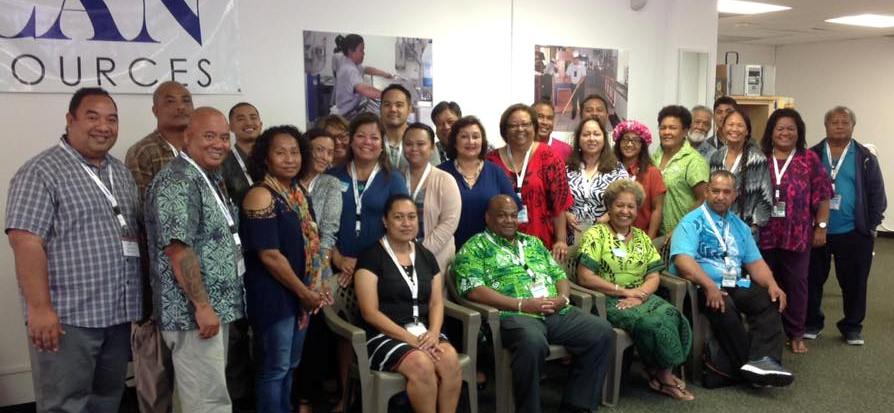SYSTEMS VITAL FOR GOVERNMENT ACCOUNTABILITY: MICRONESIAN CSOs
Date: 1 May 2017
Guam – A more systematic relationship with governments helps civil society to better promote accountability.
These sentiments were echoed by at the Pacific Islands Association of NGOs Micronesian Subregional meeting in Hagatna, Guam last week where more than 30 civil society leaders from the Federated States of Micronesia, Guam, Northern Marianas, and Marshall Islands had gathered to discuss sub regional development issues.
PIANGO executive director Emele Duituturaga who facilitated at the meeting said a lot of focus went into discussing the local level situation and the need to strengthen PIANGO national liaison units (NLUs).
“There is a greater appreciation of the need for effective coordination of CSOs at the state and national levels and for the NLUs to invigorate the efforts for CSOs to work together and to develop a systematic relationship with government,” Duituturaga said.
She said that while most were aware of the Agenda 2030 or SDGs, most if not all were struggling with how it is reported and monitored.
“There is general agreement that the Agenda 2030 or SDGs is important to monitor and they need to get organised to hold governments accountable for this,” she said.
She said as part of organising themselves, it was unanimously agreed that the PIANGO Code of Minimum Standards and accreditation would be a useful tool to strengthen their systems. Duituturaga said the fact that Guam already had an existing accreditation system was pleasing to note and that PIANGO will work with the Guam NLU, Payuta Inc to build on this.
“The meeting also discussed PIANGO’s organisational development matrix as a health check on organisational effectiveness,” she said.
Duituturaga said the two-days subregional meeting ended with each of the NLUs; FSM Alliance of NGOs(FANGO), Marianas Alliance of NGOs(MANGO), Payuta Inc and Marshall Islands Council of NGOs agreeing to a 5-points action plan. The main actions focused on SDG awareness, CSO mapping, Capacity strengthening including relations with government and Accountability standards.
ENDS

